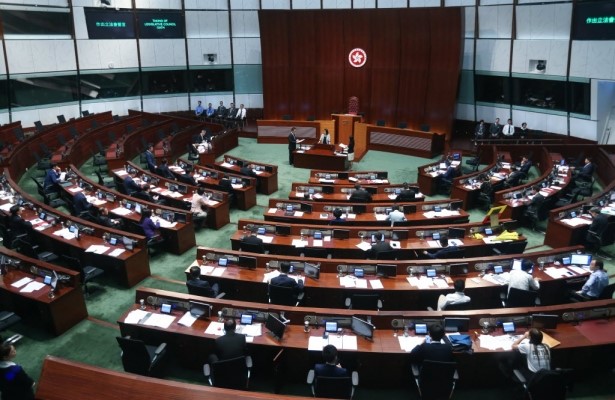Memo #389
By: Justin Kwan – justin.kwan [at] alumni.ubc.ca
Escalating tensions raise further concern about Hong Kong’s democracy

Hong Kong’s democratic system has been dealt a severe blow after two democratically elected lawmakers who advocated independence from China, Sixtus “Baggio” Leung and Yau Wai-ching, were expelled from office. Beijing, in its interpretation of Hong Kong’s Basic Law, stated that all oaths taken by lawmakers must be “sincere, solemn, accurate and complete.” Using this interpretation, the Hong Kong Government has petitioned that four additional pro-democracy lawmakers who had not campaigned for independence be removed from office, alleging that the oath ceremony was used as a “political tool” to advance personal agendas. These recent events mean that a defense of basic rights may need to become the main short-term goal of Hong Kong localists.
Although Beijing will not compromise on the issue of independence, more troublingly, it has demonstrated that it is unwilling to negotiate on issues of press freedom, democratic governance and judicial independence. The kidnapping of the Causeway Bay Booksellers, the lack of universal suffrage for the Chief Executive after the Umbrella Movement and now Beijing’s recent interpretation on the Basic Law are signs that concessions are only being made by Hong Kong society, not the Central Government.
In response, localists will likely need to redirect their focus on countering the encroachment on Hong Kong’s democratic institutions. While many observers criticized the actions of Leung and Yau during their oath-swearing ceremonies as discourteous, the issue is not one of etiquette, but of having triggered a response that has shifted the goal flags. Independence is now even less of a concern than making Beijing accountable for the fact that it has failed to uphold its own pledge to grant Hong Kong a high degree of autonomy.
With the fate of four democratic lawmakers still undetermined, the public must remain vigilant that the results of the September 2016 Legislative Council (LegCo) elections are not overturned. Localist politicians garnered seats in free and fair elections. A decision to ban them would undermine the autonomy of the LegCo and the rights of democratically elected lawmakers. If concessions are made now on these basic rights, then full democracy will likely become even harder to achieve. Beijing’s reaction to the oath-taking controversy is not only a crackdown on the independence movement, but is also a red herring that democratic rights and freedoms may not be part of Hong Kong’s long term future.
About the Author:
Justin Kwan is a graduate of the Master of Arts in Asia Pacific Policy Studies Program at the University of British Columbia.

Lawmaker Lau Siu-lai inside the Hong Kong Legislative Council (Credit: K. Y. Cheng).

Sixtus “Baggio” Leung and Yau Wai-ching protest Beijing’s interpretation of the Hong Kong Basic Law (Credit: Alex Hofford/EPA).
Links
- Suzanne Pepper, “Hong Kong Independence: From Obscure Cause to Crisis in Just One Year,” Hong Kong Free Press, November 30, 2016.
- Kwong Ying-ho, “The Growth of ‘Localism’ in Hong Kong,” China Perspectives 3 (2016): 63-68.
- Jang Jinhyeok, “Competing Political Visions in the Legislative Council of Hong Kong,” Journal of Chinese Political Science (2015): 89-102.
- Eric C. Ip, “Constitutional Conflict in Hong Kong Under Chinese Sovereignty,” Hague Journal on the Rule of Law Vol 8, Issue 1 (April 2016): 75-99.
- Albert H. Y. Chen, “The Law and Politics of the Struggle for Universal Suffrage in Hong Kong, 2013-15,” Asian Journal of Law and Society Vol 3, Issue 1 (May 2016): 189-207.